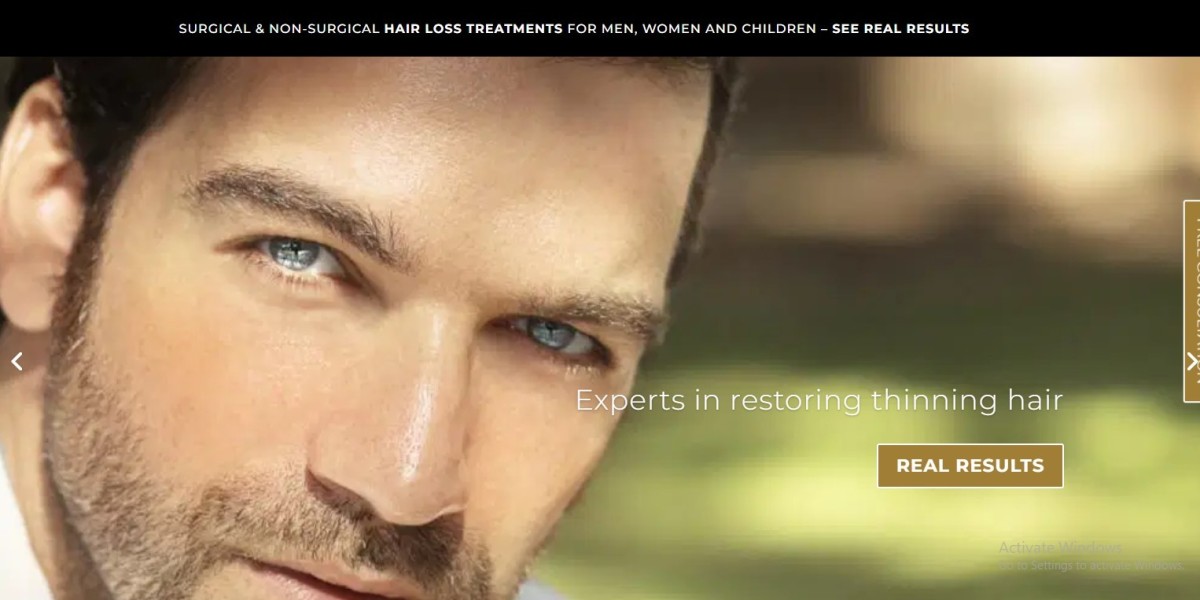For many women, menopause marks a significant life transition, bringing with it a range of physical and emotional changes. One of the less discussed but highly impactful issues is hair loss during menopause. While often associated with ageing, the hormonal shifts that occur during this stage of life play a central role in the thinning and shedding of hair.
Why Does Hair Loss Happen During Menopause?
The main factor behind menopausal hair loss is the decline in oestrogen and progesterone levels. These hormones are essential for maintaining hair growth cycles and keeping strands thick and strong. When their levels drop, hair becomes more fragile, grows more slowly, and sheds more easily. At the same time, androgens (male hormones) can become more dominant, leading to thinning around the crown and temples.
Other contributing factors include:
Stress – Emotional and physical stress can accelerate hair shedding.
Nutritional deficiencies – A lack of vitamins and minerals, such as iron, vitamin D, and biotin, can weaken hair.
Genetics – Women with a family history of hair thinning may be more prone to menopausal hair loss.
Signs of Menopausal Hair Loss
Gradual thinning across the scalp
A widening parting
Loss of hair volume and density
Slower hair regrowth after shedding
Treatment Options for Women in Menopause
The good news is that there are effective treatments to manage and even reverse menopausal hair loss:
PRP Therapy (Platelet-Rich Plasma): Stimulates follicles naturally using growth factors from your own blood.
Hormone Therapy: In some cases, HRT can help balance oestrogen and slow down hair loss.
Topical and Oral Medications: Options like Minoxidil are proven to encourage regrowth.
Nutritional Support: Supplements and a balanced diet rich in vitamins and minerals support overall hair health.
Hair Replacement or Transplants: Advanced surgical and non-surgical methods provide permanent solutions for more severe thinning.
Emotional Impact and Support
Beyond the physical changes, menopausal hair loss can take a toll on confidence and self-image. Talking with a specialist, joining support groups, or seeking counselling can help women cope with the emotional side of this transition.
Final Thoughts
Hair loss during menopause is a natural but often distressing part of ageing for women. However, with the wide range of treatments available in modern clinics, women no longer have to accept thinning hair as inevitable. By addressing hormonal changes, maintaining scalp health, and exploring medical or cosmetic solutions, it is possible to regain not only healthy hair but also self-confidence during this important stage of life.
For many women, menopause marks a significant life transition, bringing with it a range of physical and emotional changes. One of the less discussed but highly impactful issues is hair loss during menopause. While often associated with ageing, the hormonal shifts that occur during this stage of life play a central role in the thinning and shedding of hair.
Why Does Hair Loss Happen During Menopause?
The main factor behind menopausal hair loss is the decline in oestrogen and progesterone levels. These hormones are essential for maintaining hair growth cycles and keeping strands thick and strong. When their levels drop, hair becomes more fragile, grows more slowly, and sheds more easily. At the same time, androgens (male hormones) can become more dominant, leading to thinning around the crown and temples.
Other contributing factors include:
Stress – Emotional and physical stress can accelerate hair shedding.
Nutritional deficiencies – A lack of vitamins and minerals, such as iron, vitamin D, and biotin, can weaken hair.
Genetics – Women with a family history of hair thinning may be more prone to menopausal hair loss.
Signs of Menopausal Hair Loss
Gradual thinning across the scalp
A widening parting
Loss of hair volume and density
Slower hair regrowth after shedding
Treatment Options for Women in Menopause
The good news is that there are effective treatments to manage and even reverse menopausal hair loss:
PRP Therapy (Platelet-Rich Plasma): Stimulates follicles naturally using growth factors from your own blood.
Hormone Therapy: In some cases, HRT can help balance oestrogen and slow down hair loss.
Topical and Oral Medications: Options like Minoxidil are proven to encourage regrowth.
Nutritional Support: Supplements and a balanced diet rich in vitamins and minerals support overall hair health.
Hair Replacement or Transplants: Advanced surgical and non-surgical methods provide permanent solutions for more severe thinning.
Emotional Impact and Support
Beyond the physical changes, menopausal hair loss can take a toll on confidence and self-image. Talking with a specialist, joining support groups, or seeking counselling can help women cope with the emotional side of this transition.
Final Thoughts
Hair loss during menopause is a natural but often distressing part of ageing for women. However, with the wide range of treatments available in modern clinics, women no longer have to accept thinning hair as inevitable. By addressing hormonal changes, maintaining scalp health, and exploring medical or cosmetic solutions, it is possible to regain not only healthy hair but also self-confidence during this important stage of life.






